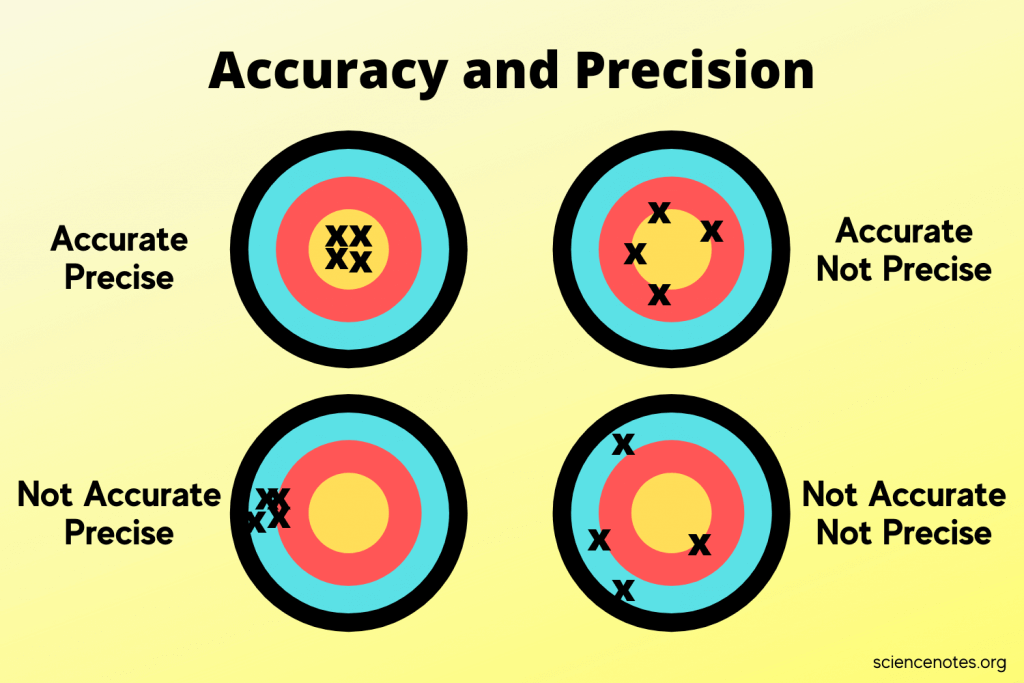Error Analysis
🔖 Topics
- Accuracy versus precision
- Gross / human errors
- Random errors
- Systemic errors
- Error mitigation techniques
🎯 Objectives
- Explain the difference between accuracy and precision
- Compare and contrast three major types of errors - gross / human, random, and systemic.
- Classify examples of errors as gross / human, random, or systemic
- Discuss different strategies to overcome errors in experiments
📋 Sequence

Image courtesy of (“Errors in Measurement: Measurement, Gross Errors, Systematic Errors, Random Errors and FAQs”).
- Accuracy vs. precision
- Gross / human errors
- Errors that come from human oversight / mistakes (e.g. I forgot to read the directions)
- Not an acceptable error in the lab
- If you report these as errors, I will not count them as correct 😓
- Random errors
- Mainly affect precision, not accuracy
- Relatively easy to spot compared to systemic errors
- Relatively easy to overcome compared to systemic errors (e.g. repeated measurements, larger sample size, control extraneous variables)
- Systemic errors
- Mainly affect accuracy, not precision
- Can be difficult to spot
🖥️ Animations, Simulations, Activities
N/A
📝 Practice Problems
We will have an in-class discussion about different types of errors in the lab today. No practice problems for this lesson!
✅ Partial Solutions
N/A
📘 Connected Resources
- “Errors in Measurement: Measurement, Gross Errors, Systematic Errors, Random Errors and FAQs.” BYJUS, https://byjus.com/physics/accuracy-precision-error-measurement/. Accessed January 27, 2024.